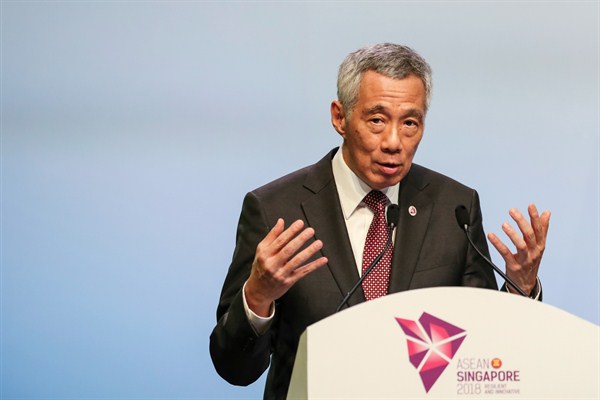Throughout its history, Singapore’s political scene has been tightly controlled by the People’s Action Party, or PAP, which currently holds all but six of the 89 elected seats in the island nation’s Parliament. While the PAP’s dominant position is unlikely to change anytime soon, it faces a potential uphill climb in the next general election, which is due by January 2021 but could be held as soon as this year. Tan Cheng Bock, a former PAP presidential candidate, is setting up a new political party to challenge the PAP, an effort that has earned the support of Prime Minister Lee Hsien Loong’s brother, Lee Hsien Yang. A number of other regional and global factors present possible threats to the PAP, says Kai Ostwald, a political scientist who specializes in Southeast Asia at the University of British Columbia. In an interview with WPR, he evaluates whether Tan’s efforts could provide a needed shot in the arm to Singapore’s weak opposition.
World Politics Review: How has Singapore’s political landscape been affected by recent developments in the region?
Kai Ostwald: The surprise defeat in Malaysia of United Malays National Organization, or UMNO, and its Barisan Nasional coalition in last year’s general election is important. Both UMNO and the PAP had led their countries without interruption since independence, providing some mutual legitimacy to that form of single-party dominance. With UMNO’s unexpected defeat, the PAP looks a lot lonelier. To be clear, there is little chance of a Singaporean leadership transition in the near term, but the developments in Malaysia invite obvious questions about the PAP’s future and undermine its veneer of invincibility.

